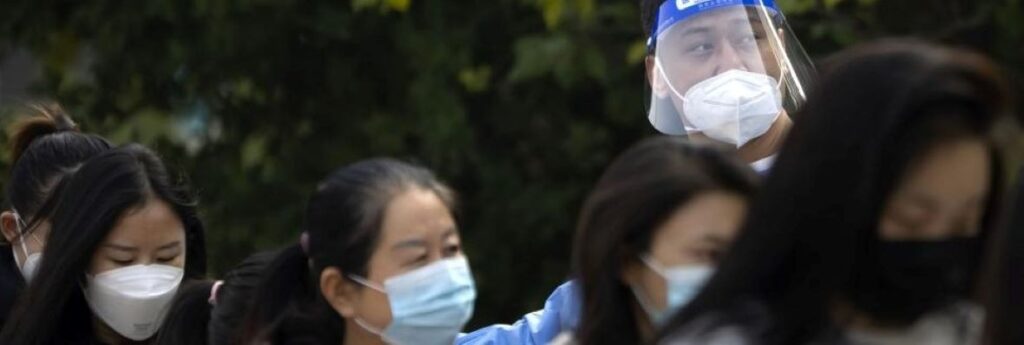Travellers arriving in China will now spend less time in quarantine – five days instead of seven – under changes to sweeping anti-virus controls announced Friday. The announcement came even as an upsurge in COVID-19 cases prompted Beijing to close parks and impose other restrictions.
The country reported 10,729 new cases, and more than 5 million people were confined to their homes in the southern manufacturing hub of Guangzhou and the western megacity of Chongqing.
With the bulk of Beijing’s 21 million people undergoing near-daily testing, another 118 new cases were recorded in the sprawling city. Many city schools switched to online classes, hospitals restricted services and some shops and restaurants were shuttered with their staff taken to quarantine. Videos on social media showed people in some areas protesting or fighting with police and health workers.
It wasn’t immediately clear when or where the rules would take effect and whether they would apply to foreigners and Chinese citizens alike, however the government said the relaxed standards will also be applied to foreign businesspeople and athletes, in what appeared to be a gradual move toward normalization.
Incoming passengers will be required to be quarantined for five days at a designated location, followed by three days of isolation at their place of residence, according to a notice from the State Council, China’s Cabinet.
Airlines will also no longer be threatened with a two-week suspension of flights if five or more passengers test positive, the regulations said, potentially providing a major expansion of seats on such flights that have shrunk in numbers and soared in price since restrictions were imposed in 2020.
Those flying to China will only need to show a single negative test for the virus within 48 hours of traveling, the rules said. Formerly, two tests within that time period were required.
Macau will also cut its hotel quarantine period from seven days to five days, followed by three days of isolation at one’s residence, for arrivals from Hong Kong, Taiwan and overseas starting from Saturday, authorities there said.
Chinese leaders had promised on Thursday to respond to public frustration over the severe “zero-COVID” strategy that has confined millions to their homes and severely disrupted the economy.

